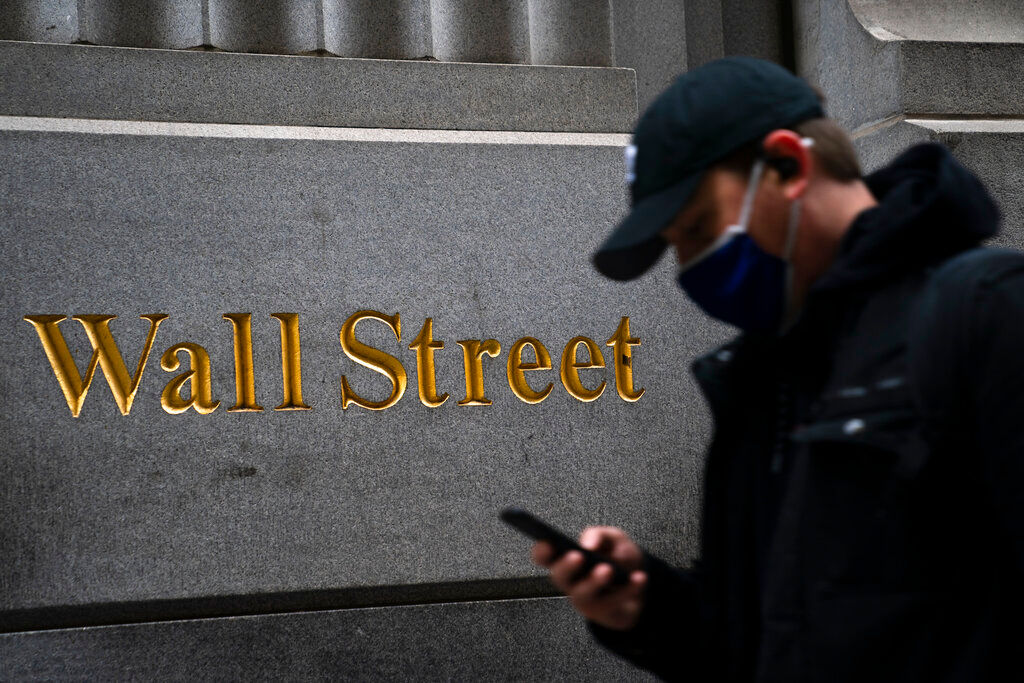Wall Street fell again on Monday, kicking off a week of reports on how severe inflation is and how corporate earnings are dealing with it.
The S&P 500 plummeted 1.2%, wiping off the entirety of its previous week’s gains. The Dow Jones Industrial Average fell 0.5%, while the Nasdaq Composite fell 2.3%.
Also Read | Indian rupee hits all-time low on stronger dollar, recession worries
Smaller company stocks were among the worst performers, with the Russell 2000 index down 2.1% as concerns about a future recession weighed on markets. The Federal Reserve is raising interest rates in response to the biggest inflation in four decades, putting the brakes on the economy and pulling down on all types of investments.
Also Read | Week ahead: Quarterly results, crude price to weigh on Sensex, Nifty
Parts of the economy are slowing already, though the still-hot jobs market remains a notable exception.
COVID also continues to drag on the global economy. An outbreak of infections is forcing casinos in the Asian gambling centre of Macao to shut for at least a week. That sent Wynn Resorts and Las Vegas Sands down more than 6% apiece for some of the larger losses in the S&P 500.
Also Read | Week in review: Sensex, Nifty surge as crude prices fall below $100
Twitter lost, even more, 11.3%, in the first trading after billionaire Elon Musk said he wants out of his deal to buy the social media platform for $44 billion. Twitter said it will take Musk to court to uphold the agreement.
Other big technology companies were also particularly weak. It’s a continuation of this year’s trend, where rising rates most hurt the investments that soared highest earlier in the pandemic.
Also Read | What to do if restaurants and hotels continue to levy a service charge
The struggles pulled the Nasdaq down 262.71 points to close at 11,372.60. The S&P 500 dropped 44.95 to 3,854.43, and the Dow dipped 164.31 to 31,173.84.
In the bond market, a warning signal continued to flash about a possible recession. The yield on the 10-year Treasury slid to 2.98% from 3.09% late Friday as investors moved dollars into investments seen as holding up better in a downturn. It remains below the two-year Treasury yield, which fell to 3.07%.
Also Read | Twitter takeover saga enters ‘Twilight zone’: Elon Musk wants to end deal
Companies this week are set to begin reporting how their profits fared during the spring. Big banks and other financial companies dominate the early part of the schedule, with JPMorgan Chase and Morgan Stanley set for Thursday. BlackRock, Citigroup and Wells Fargo are among those reporting on Friday.
Also Read | Why is Elon Musk keen to walk away from Twitter deal?
Expectations for second-quarter results seem to be low. Analysts are forecasting 4.3% growth for companies across the S&P 500, which would be the weakest since the end of 2020, according to FactSet.
Even if companies end up reporting better results than expected, which is usually the case, analysts say the heavier focus will be on what CEOs say about their profit trends for later in the year.
Also Read | How to survive a market crash
The roughly 19% drop for the S&P 500 this year has been due entirely to rising interest rates and changes in how much investors are willing to pay for each $1 of a company’s profit. So far, expectations for corporate profits have not come down much. If they do, that could lead to another leg downward for stocks.
Also Read | US inflation rate at a 40-year high | A timeline: 1930-2022
Beyond earnings updates, reports this week on inflation will likely dominate trading. On Wednesday, economists expect a report to show that inflation at the consumer level accelerated again last month, up to 8.8% from 8.6% in May.







